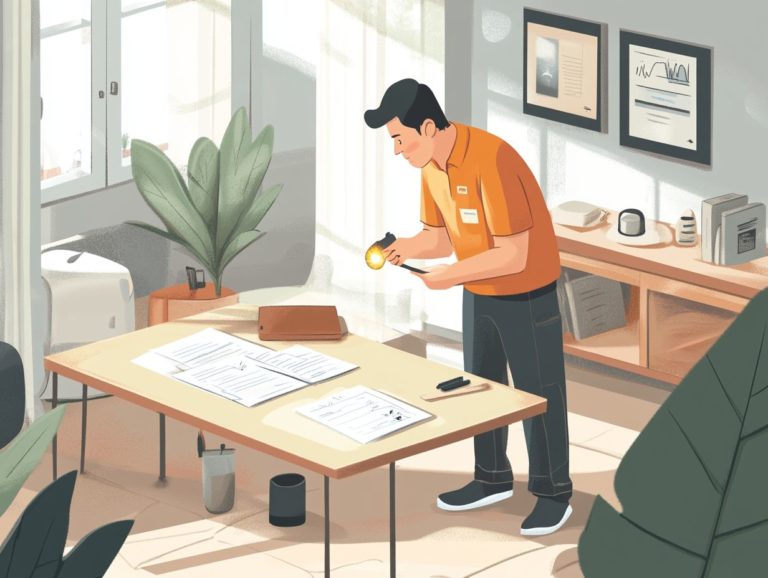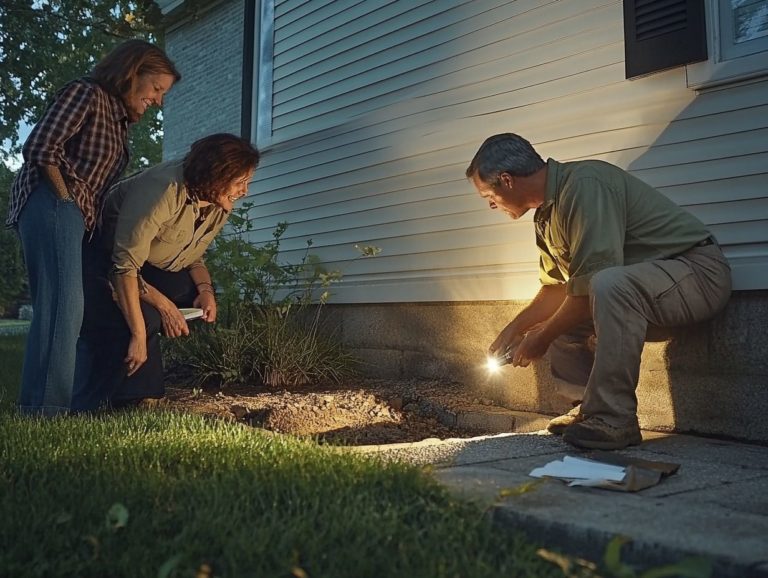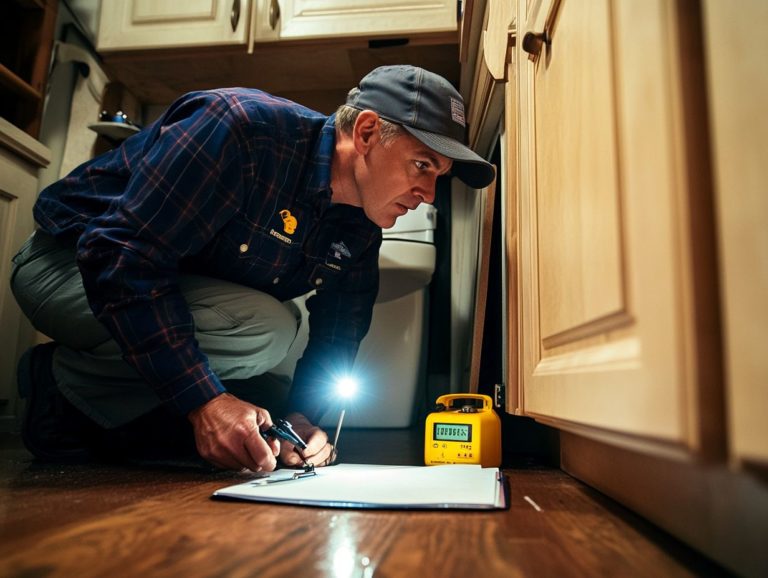The Importance of Home Inspections for New Homeowners
Buying a new home is an exciting adventure! But don t overlook the responsibilities that come with it, like getting a home inspection. One of the most vital steps in this process is the home inspection. Think of it as your safety net, allowing you to uncover potential issues before they evolve into costly surprises.
This article delves into the purpose and benefits of home inspections, what you can expect during the process, common issues that might arise, and essential tips for preparation and negotiation.
Whether you re a first-time buyer or a seasoned homeowner, grasping the significance of a thorough inspection can save you time, money, and a great deal of stress.
Contents
- Key Takeaways:
- Why Home Inspections are Essential for New Homeowners
- What to Expect During a Home Inspection
- Common Issues Found During Home Inspections
- The Role of a Home Inspector
- Preparing for a Home Inspection
- Addressing Issues Found During a Home Inspection
- Frequently Asked Questions
- What is the purpose of a home inspection for new homeowners?
- Why is it important for new homeowners to get a home inspection?
- When should new homeowners schedule a home inspection?
- What common problems can a home inspection reveal?
- Can a home inspection help with negotiating the price of a home?
- Are there any benefits to getting a home inspection for new construction homes?
Key Takeaways:
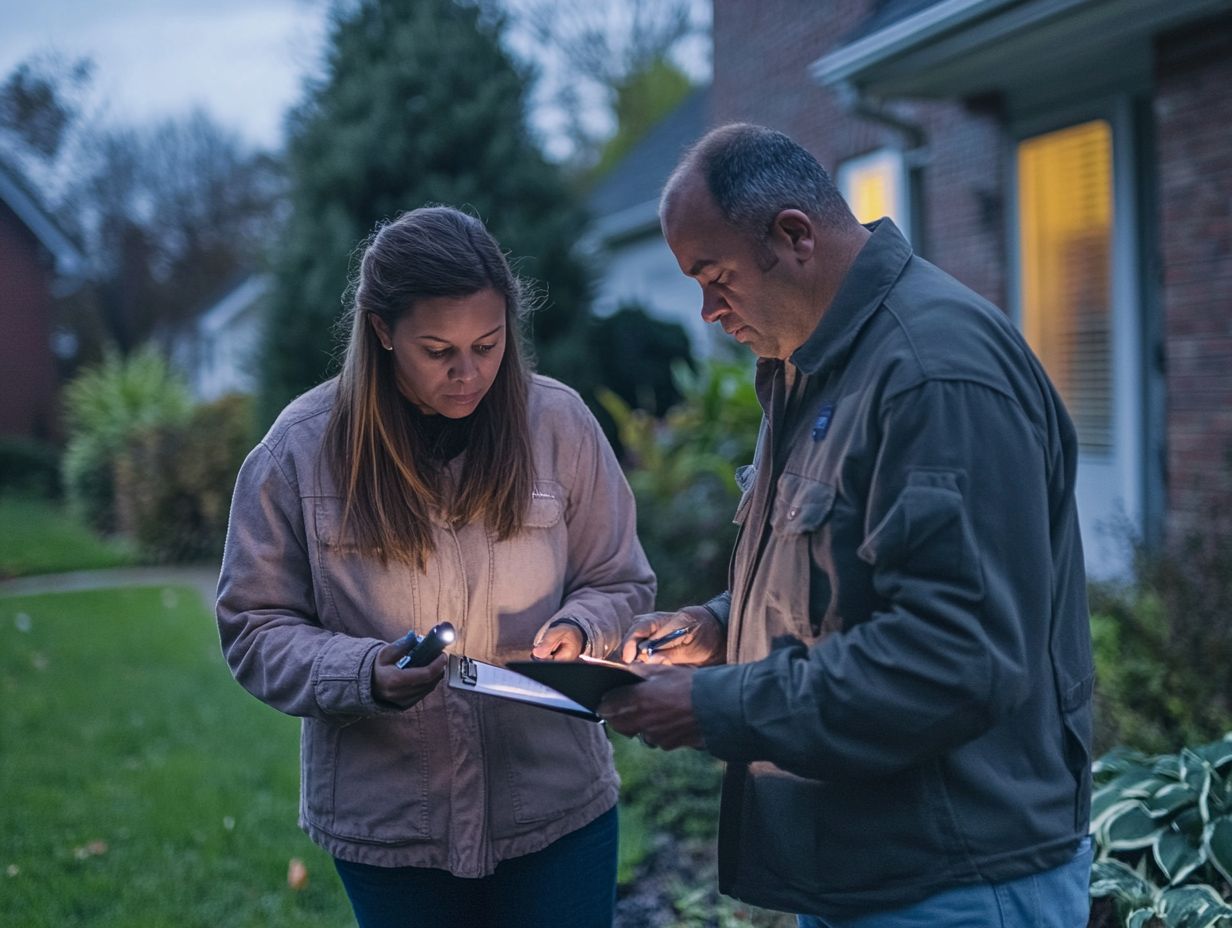
Home inspections help new homeowners understand the condition of their property and identify potential issues before they become major problems. During a home inspection, a qualified professional will thoroughly evaluate key areas of the home to ensure safety and functionality, highlighting the importance of thorough home inspections.
It is important for new homeowners to prepare for a home inspection and address any issues found with the seller in a timely and effective manner, as highlighted in the importance of pre-purchase home inspections.
Why Home Inspections are Essential for New Homeowners
Home inspections are vital for you as a new homeowner. They offer a critical overview of a property’s condition and highlight the importance of home inspections for property buyers, ensuring you are fully aware of potential safety risks and the structural integrity of your future home before you close the deal.
A thorough inspection report can uncover issues like faulty wiring, plumbing snags, and heating, ventilation, and air conditioning (HVAC) inefficiencies. This enables you to make informed decisions and sidestep unexpected costs down the line.
Having an inspection in your corner gives you the leverage to negotiate repairs with sellers. This enhances your position during the buying process and ultimately leads to peace of mind as you embark on your journey into homeownership, highlighting the importance of home inspections in real estate.
Understanding the Purpose and Benefits
Understanding the purpose and benefits of a home inspection is essential for you as a home buyer. Knowing the importance of a thorough home inspection enables you to make informed decisions throughout the buying process.
This critical evaluation doesn t just reveal hidden defects that might escape your notice; it strengthens your position during negotiations. With a comprehensive inspection report in hand, you can effectively address concerns or even request repairs before sealing the deal.
This proactive approach grants you peace of mind, allowing you to move forward confidently, knowing you re making a sound investment. For many, a thorough inspection turns uncertainty into clarity, making it an essential part of your real estate journey.
What to Expect During a Home Inspection
During a home inspection, you can anticipate a meticulous examination of essential areas such as plumbing systems, electrical outlets, HVAC systems, and structural integrity. Each of these components plays a vital role in assessing the overall condition of the property.
Knowing this ensures you’re well-informed about your potential investment.
Step-by-Step Process and Key Areas of Focus
The step-by-step process of a home inspection revolves around several crucial areas that demand your attention. These include assessing foundation issues, identifying mold problems, and uncovering pest infestations factors that can dramatically impact the property’s value.
Beyond these critical elements, you should also recognize that the inspection encompasses the roof, plumbing, electrical systems, and the overall integrity of the home. Each phase is pivotal in determining the property s safety and livability.
For example, a compromised foundation can lead to expensive repairs in the future, while unnoticed pests might wreak havoc over time. Engaging with a qualified inspector is essential, as they pinpoint these concerns and offer practical recommendations.
This comprehensive approach enables you to make informed decisions about your investment, ensuring that you re well-equipped to navigate the complexities of homeownership.
Common Issues Found During Home Inspections
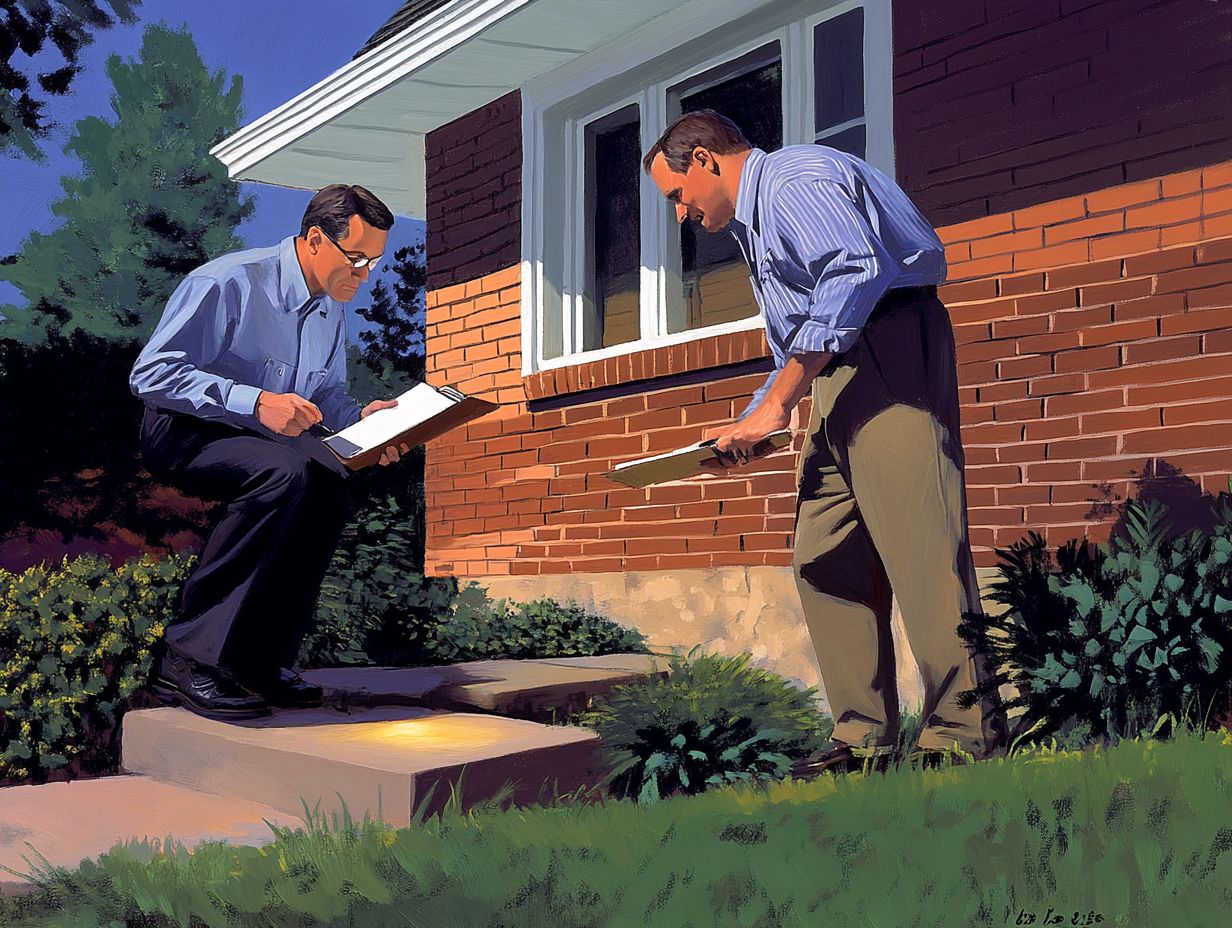
Common issues uncovered during home inspections can vary from faulty wiring and structural concerns to HVAC inefficiencies. Each of these presents potential risks and future costs that you should be acutely aware of before moving forward with your home purchase.
Act now! Schedule your home inspection as soon as possible to ensure peace of mind and protect your investment.
Potential Problems and Their Solutions
Addressing potential problems uncovered during a home inspection like faulty wiring, plumbing issues, and mold demands your immediate attention. Appropriate solutions are essential to safeguard both the safety and longevity of your property.
Neglecting these issues can lead to more serious complications, such as fire hazards or structural damage.
When it comes to faulty wiring, bringing in a licensed electrician is essential. Their expertise can prevent electrical fires and significantly enhance your home s safety.
For plumbing issues, timely repairs not only conserve water but also prevent costly damage to your walls and floors.
When dealing with mold, professional removal and treatment is non-negotiable to reduce health risks and stop future growth. Act now to ensure a safe and healthy living environment!
The Role of a Home Inspector
The role of a home inspector is crucial in the real estate transaction process. You can rely on them to assess a property’s condition thoroughly.
They provide expert recommendations based on their qualifications and extensive experience in inspection services. Their insights can significantly influence your decision-making, ensuring that you make informed choices about your investment.
Qualifications and Responsibilities
A qualified home inspector should hold certifications from esteemed organizations, such as the American Society of Home Inspectors and the International Association of Certified Home Inspectors. They must deliver comprehensive property inspections.
These credentials ensure that the inspector has completed rigorous training and adheres to industry standards. However, it s not just about the paperwork an effective home inspector must possess a sharp eye for detail and the ability to convey their findings clearly to homeowners.
During the inspection, they meticulously evaluate critical elements such as structural integrity, electrical systems, plumbing, and overall safety. This offers invaluable insights that can significantly affect your decision as a buyer.
This thorough approach enables you to make informed choices and plays a crucial role in negotiating repairs or price adjustments before you finalize your purchase.
Preparing for a Home Inspection
Preparing for a home inspection is easy when you follow these essential tips!
Start by creating a comprehensive inspection checklist to ensure nothing is overlooked. Address any immediate maintenance tasks around your home before the inspector arrives; this will help the inspection go smoothly and leave a positive impression.
Taking these steps will set you up for success.
Tips for a Smooth and Successful Inspection
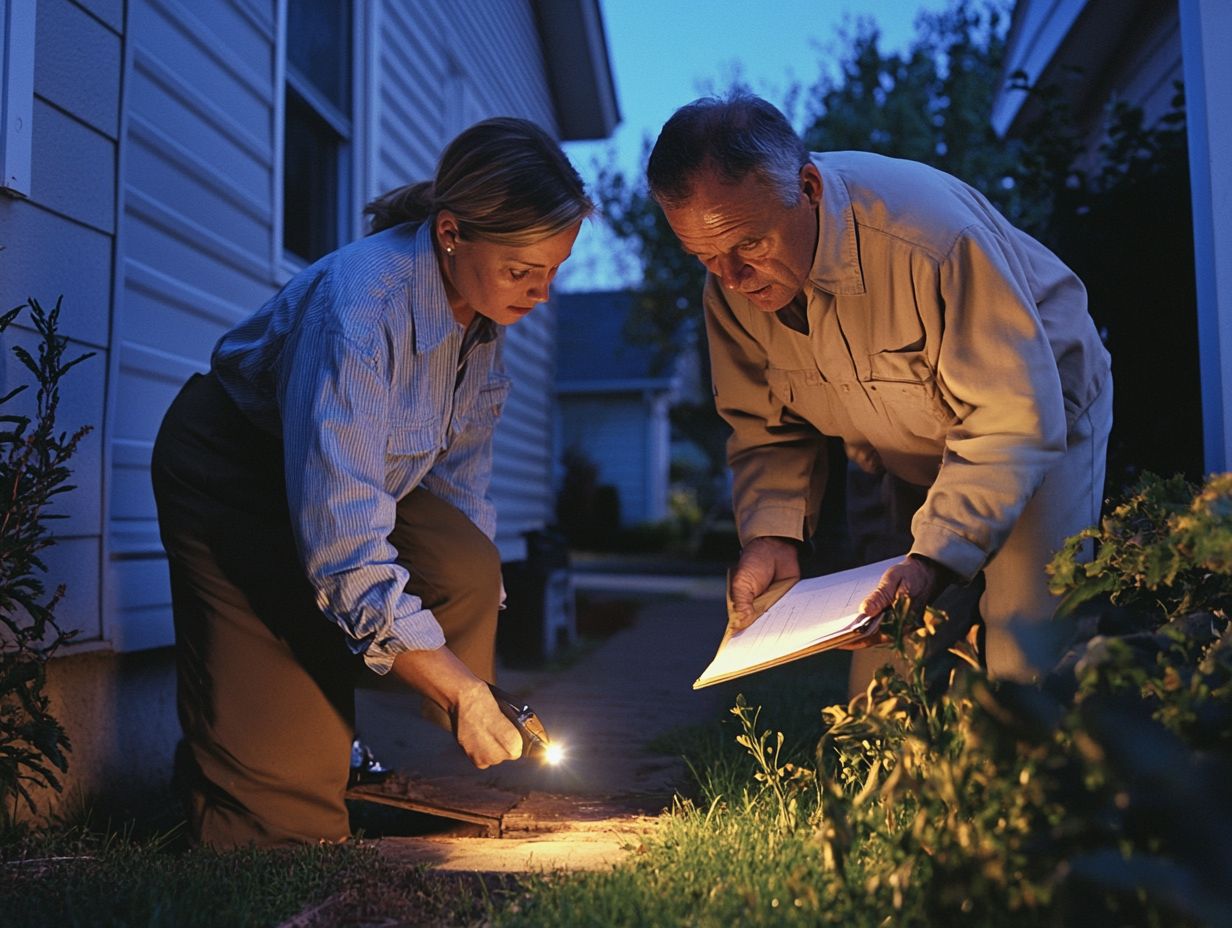
For a seamless home inspection, it’s essential to prioritize proper preparation. This means addressing any home maintenance issues and ensuring the inspector has unobstructed access to every corner of the property.
Start by decluttering spaces like basements, attics, and garages. This allows inspectors to evaluate the condition of your home thoroughly without running into unnecessary obstacles.
Checking for water leaks, confirming that heating and cooling systems are operational, and replacing burnt-out light bulbs can all significantly contribute to achieving a favorable outcome.
It’s also beneficial to communicate openly with your inspector about any known issues. This transparency can lead to a more efficient and effective inspection process.
By taking these proactive steps, you’ll be better positioned to understand potential repairs and maintenance needs as you move forward.
Addressing Issues Found During a Home Inspection
Addressing issues uncovered during a home inspection is crucial for you as a buyer. This step opens the door for negotiating repairs and allows you to leverage the findings to make well-informed requests from the seller during the closing process.
Negotiating with the Seller and Next Steps for the Buyer
When you negotiate with the seller after the inspection, it s essential to focus on the major repairs highlighted in the inspection report. Make sure your requests are reasonable and align with your responsibilities as a buyer in this transaction.
As a potential buyer, take a step back to evaluate the overall condition of the property. Finding a balance between your needs and the seller s position is crucial.
Effective communication is key. Starting the conversation with a collaborative tone can lay the groundwork for a productive dialogue. Be sure to pinpoint specific issues and provide clear explanations supported by the inspection findings. This approach helps the seller truly understand your concerns!
Staying flexible and open to negotiation fosters goodwill and opens the door to mutually beneficial solutions. This can mean repairs, credits (money off the purchase price), or adjustments to the final price.
Frequently Asked Questions
What is the purpose of a home inspection for new homeowners?
A home inspection is a thorough examination of a property’s condition, including its structural integrity, major systems, and safety features. Its purpose is to inform new homeowners of any potential issues or repairs that may need to be addressed before finalizing the purchase of the home.
Why is it important for new homeowners to get a home inspection?
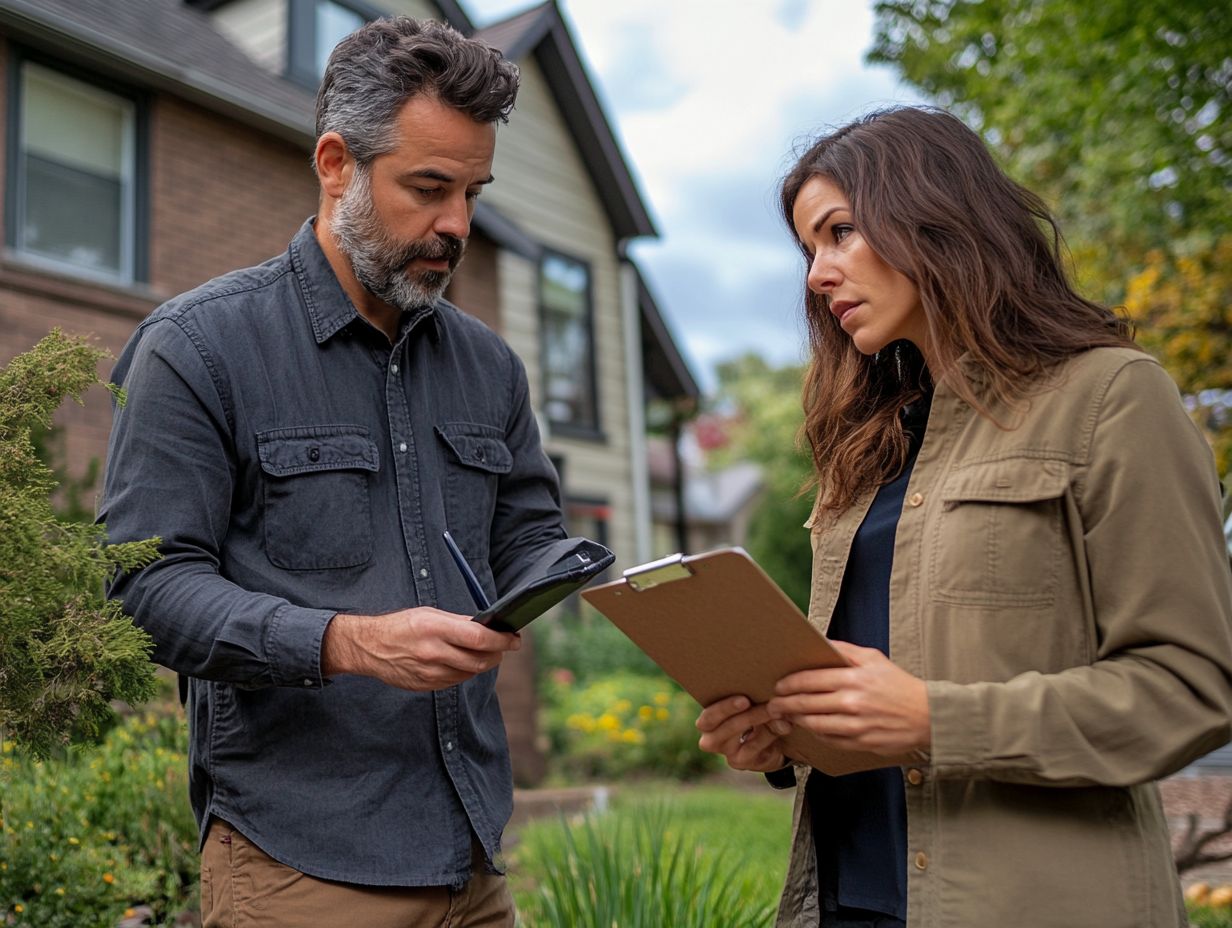
Getting a home inspection is important for new homeowners because it provides a better understanding of the overall condition of the property. It can help identify any major concerns that may affect the safety, functionality, or value of the house, highlighting the importance of home inspections for new homeowners.
When should new homeowners schedule a home inspection?
The best time to schedule a home inspection is after you have placed an offer on a property and before the closing process. This timing allows for any potential issues to be addressed before making a final decision on the purchase.
What common problems can a home inspection reveal?
Common issues found during a home inspection include structural problems, faulty electrical or plumbing systems, water damage, mold, and pest infestations. These issues can range from minor repairs to serious and costly concerns.
Can a home inspection help with negotiating the price of a home?
Yes, a home inspection report can provide valuable information to help negotiate the price of a home. If major issues are found during the inspection, buyers can use this as leverage to request repairs or a lower price from the seller.
Are there any benefits to getting a home inspection for new construction homes?
Yes, even though a new construction home may seem perfect, a home inspection can still uncover potential issues or defects that may have been overlooked during the building process. Understanding the role of home inspections for first-time buyers can save new homeowners from unexpected expenses and repairs in the future.
Ready to schedule your home inspection? Contact us today!

